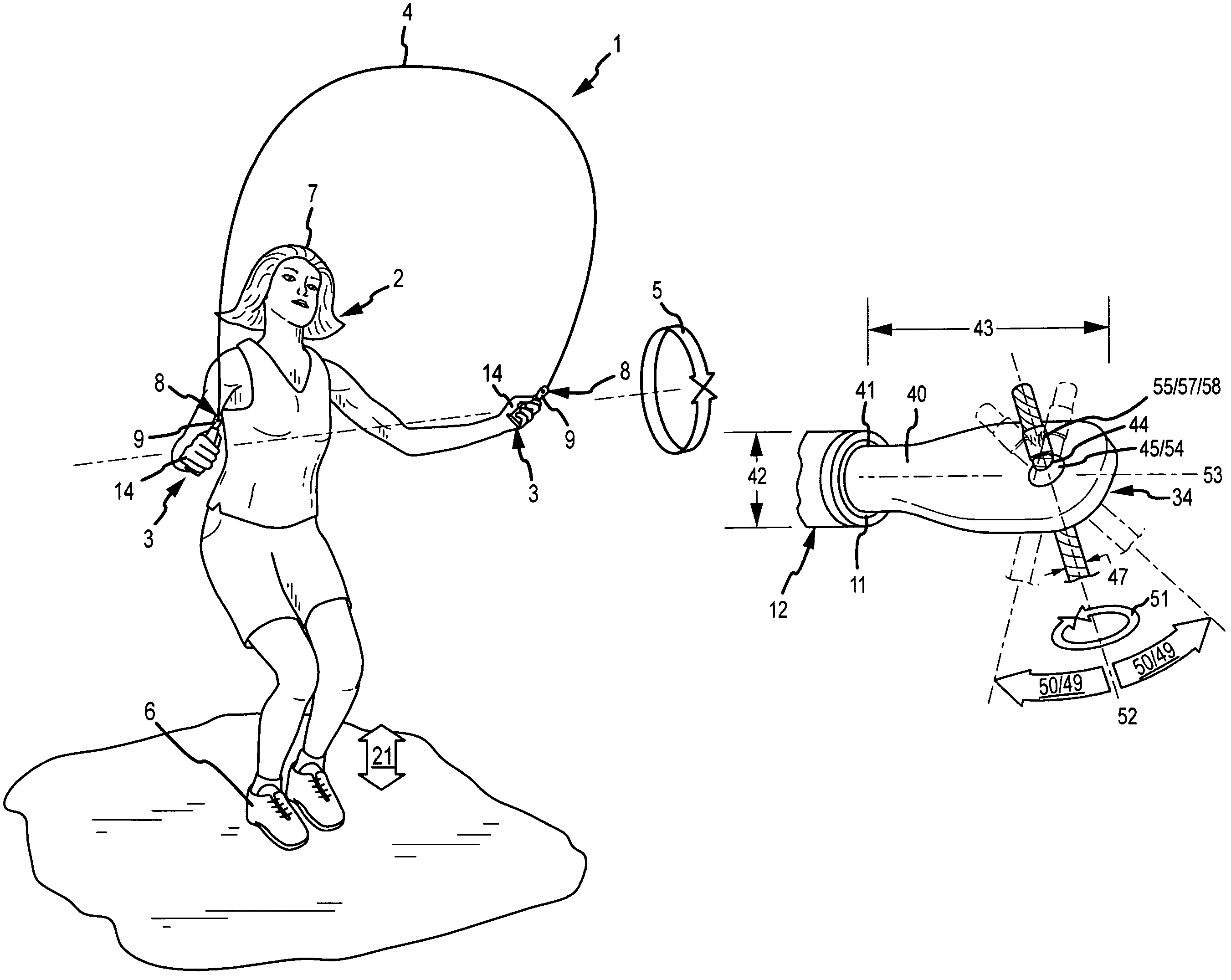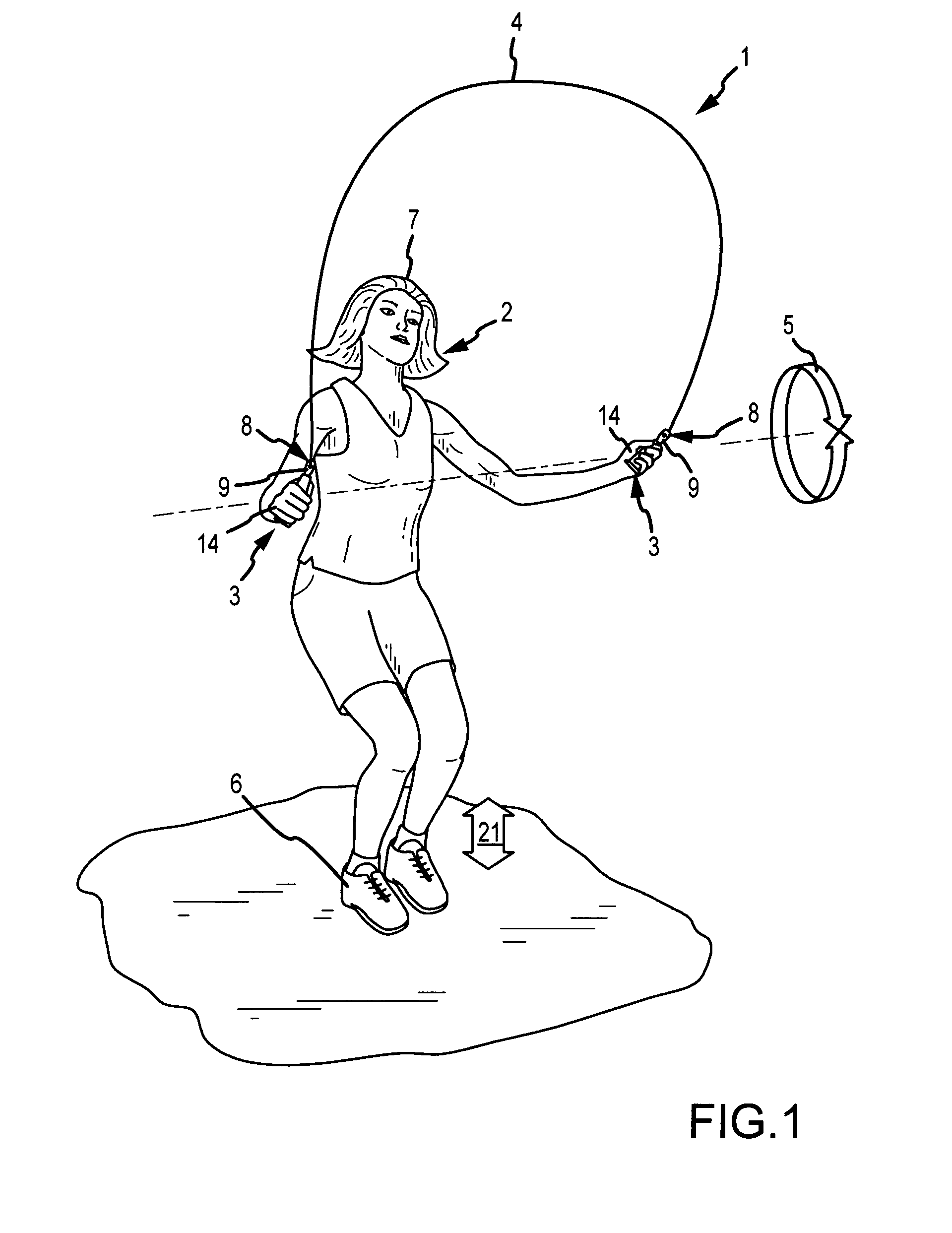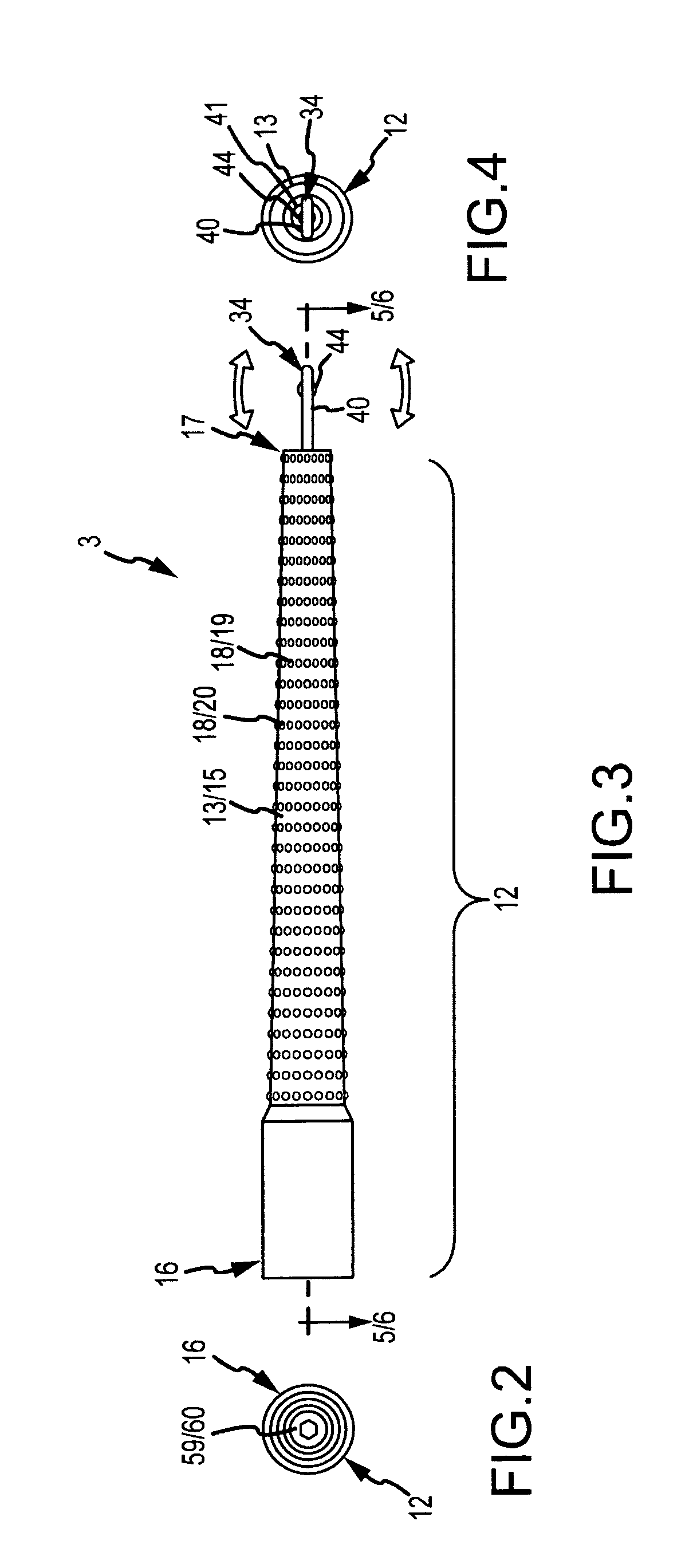Jump rope system
a rope system and rope handle technology, applied in skipping ropes, gymnastic exercise, sport apparatus, etc., can solve the problems of limited speed at which the attached rope or cable element can be rotated by conventional jump rope, the resistance of the rope or cable element to conventional rotation, and the substantial problems of conventional jump rope still remain unresolved
- Summary
- Abstract
- Description
- Claims
- Application Information
AI Technical Summary
Benefits of technology
Problems solved by technology
Method used
Image
Examples
Embodiment Construction
[0020]A jump rope which provides a pair of handles each handle providing a shaft coaxially rotatably engaged to a first bearing element and a second bearing element which attaches to a corresponding one of the opposed ends of a cable element.
[0021]Now referring primarily to FIG. 1, which depicts a particular non-limiting method of using the inventive jump rope (1), a jumper (2) by gripping each of a pair of handles (3) can cause a cable element (4) attached to each of the pair of handles (3) to turn (5). Jumping over the turned cable element (4) so that the cable element (4) passes under the feet (6) and over the head (7) allows the jumper (2) to perform a basic jump (21). By attaching each one of a pair of opposed cable ends (8) of the cable element (4) to a shaft (9) (see also FIGS. 5-7) coaxially rotatably engaged to a first bearing element (10) and a second bearing element (11) retained in each one of the pair of handles (3), the cable element (4) can turn (5) in lesser amount t...
PUM
 Login to View More
Login to View More Abstract
Description
Claims
Application Information
 Login to View More
Login to View More - R&D
- Intellectual Property
- Life Sciences
- Materials
- Tech Scout
- Unparalleled Data Quality
- Higher Quality Content
- 60% Fewer Hallucinations
Browse by: Latest US Patents, China's latest patents, Technical Efficacy Thesaurus, Application Domain, Technology Topic, Popular Technical Reports.
© 2025 PatSnap. All rights reserved.Legal|Privacy policy|Modern Slavery Act Transparency Statement|Sitemap|About US| Contact US: help@patsnap.com



